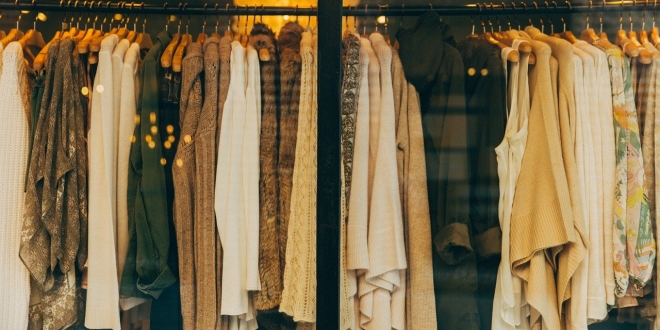The COVID-19 outbreak and subsequent lockdown in Leicester has highlighted the abuses of fashion workers in the East Midlands city.
A special government taskforce and proposals for a new factory licensing scheme are unlikely to prevent labour abuses in the garment and textile industries without the involvement of trade unions and community groups to help workers.
That is the judgement of several advocates in the city of Leicester, which has been in the spotlight in recent weeks following reports in the media that suppliers to popular fashion brands such as Boohoo were paying workers as little as £3 per hour – half the minimum wage.
The companies involved have vowed to investigate and take action, but have faced criticism for terminating or suspending contracts with suppliers rather than working with them to improve labour conditions.
The Home Secretary Priti Patel said last week that a cross-government taskforce “will be on the ground” in Leicester soon, while a retail sector lobby group today called for factories to be licensed to tackle issues such as low pay and forced labour.
However, such a ‘top-down’ approach will do little to reassure workers in the garment industry or address their inability to join trade unions, demand better working conditions or report abuses without the fear of being fired or even deported, according to local community organisers and campaigners.
Mark Mizzen of the Leicester Unemployed Workers Centre charity said: “We need a community development approach, to work door-to-door … for people to be able to organise, get support within the community and have a decent standard of living.”
Yet organising within the sector is difficult as employers are not required to allow access to trade unions and many suppliers in Leicester have a small number of workers on a casual basis, local activists said.
Leicester is home to around 1,500 textile factories and 10,000 garment workers, and industry experts say that labour exploitation in the city has long gone unaddressed despite several exposes in recent years and a parliamentary probe into the issue in 2019.
A group of investors, lawmakers and brands, including Boohoo, have called on the government to set up a statutory licensing scheme to prevent rogue businesses from accessing the market and undercutting legitimate garment manufacturing firms.
Helen Dickinson, chief executive of the British Retail Consortium, said: “While there is no silver bullet, licensing is a critical step toward resolving (labour exploitation).”
However, trade union GMB has entered the debate saying that the scheme would be ineffective without the direct involvement of unions and that brands should only give contracts to suppliers to agree to collective bargaining.
“If (the licensing scheme) is just a tick-box exercise, and based on audits, bad employers will cover abuses up, find a loophole and get around it,” said GMB officer Colin Whyatt.
Unions and activists have called for laws requiring retailers to publish details of their suppliers and audits, and making them responsible for any abuses in their supply chains.






Facebook Comments